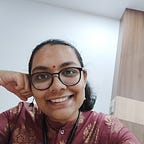#TheyAreUs: The massacre that shook New Zealand’s peaceful foundation
On 15th March 2019 at 1:40 pm New Zealand Standard Time, a white supremacy terrorist shot worshipers in two mosques, Al Noor and Linwood Islamic Centre, leaving around 50 people dead. This attack has created shockwaves in New Zealand and around the world since the country is not just a popular tourist destination, but is also one of the most peaceful and remote countries in the world. Before he could reach the third location, he was arrested by the police 21 minutes after the first emergency call. The terrorist, identified as Brenton Tarrant’s reason for the attack, also highlighted in the manifesto sent to New Zealand Prime Minister Jacinda Ardern and others was that, even the remotest of areas could be unsafe for immigrants and the attacks by Muslim extremists in Europe prompted him to seek revenge by targeting the Muslim immigrants.
The way New Zealand has handled the aftermath of the worst peacetime mass shooting in the country’s history, is a lesson for the rest of the world as to how countries should handle tragedies — with empathy and compassion. The day after the shooting, the PM called for an immediate ban on all semi-automatic and assault rifles. She promised in the Parliament that whenever she’ll mention the gunman, he will be nameless. “He sought many things from his act of terror but one was notoriety, that is why you will never hear me mention his name,” she said of the gunman. “He is a terrorist. He is a criminal. He is an extremist. But he will, when I speak, be nameless. “And to others, I implore you: speak the names of those who were lost rather than the name of the man who took them. He may have sought notoriety but we, in New Zealand, will give nothing — not even his name.”
“He is a terrorist. He is a criminal. He is an extremist. But he will, when I speak, be nameless.
The PM also gave financial assistance to those families, whose loved ones were either killed or injured, irrespective of their immigration status. The assistance is covered under accident compensation scheme, which offers compensation for lost income and $10,000 funeral grant, among other benefits. During the shooting, two emigrants, Naeem Rashid from Pakistan who confronted the gunman before he was killed along with his son, and Abdul Aziz from Afghanistan managed to save many lives. Aziz was praying along with his four sons when he heard gunshots inside the Linwood centre, instead of hiding, he saw the first thing that caught his eye — a credit card machine. He took it and ran outside screaming, hoping to distract the attacker, “Come here!”.
The gunman returned to his car to pick another weapon when Aziz hurled the credit card machine at him. When the gunman returned, he started firing at him. Aziz ran towards the parked cars in the driveway, which saved him from being shot. His two sons were urging him to come back. When the gunman ran towards his car, likely to pick another weapon, Aziz took the gun which the gunman had discarded, aimed at him and squeezed the trigger; but it was empty. He threw the gun at the gunman’s car that hit the back window. The gunman got scared and started yelling expletives at him. He started the car but Aziz chased him till the red light, where the gunman made a U-turn and sped away.
This whole shooting and its aftermath was (and still is) very tumultuous and intense to follow. When a Muslim extremist commits an act of terrorism, the media uses the term “terrorist” or “extremist” but when a Caucasian commits the same act, why does media (especially the Western media) call him a “lone wolf”? The light at the end of this dark tunnel of killings,was the heroism of two unarmed Muslims, one of whom lost his life trying to stop the terrorist.
